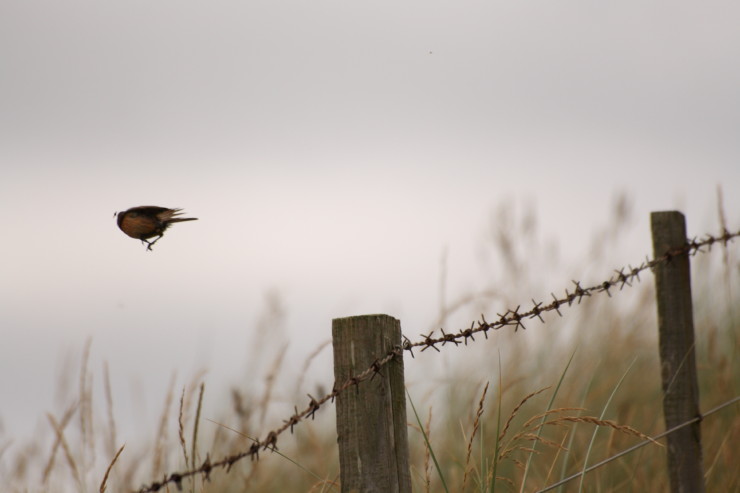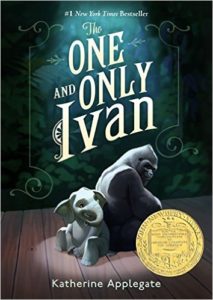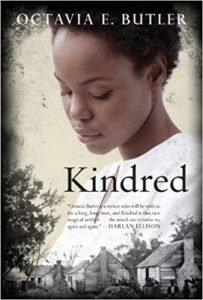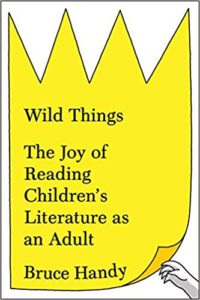At Tweetspeak, books matter. We host a book club, we review books, and we publish them at TS Poetry Press. We’re dedicated to literacy — for life. And we want to learn from each other about reading in the wild.
Do you want to be a wild reader? Are you reading wildly already? We’re using Donalyn Miller’s Reading in the Wild: The Book Whisperer’s Keys to Cultivating Lifelong Reading Habits to explore what it means to be a wild reader — someone most likely to embrace literacy for life. Read through these 5 characteristics and see which ones fit your reading style and which you might incorporate this month.
5 Main Characteristics of Wild Readers
1.They dedicate time to read.
During last month’s Children’s Book Club discussion about Katherine Applegate’s The Buffalo Storm, someone mentioned loving her Newbery-winning book, The One and Only Ivan. I brought this gorilla with me on a plane and devoured his story in one sitting, from Boston to Baltimore. (I like to bring real books on planes because they do not need to be plugged in—a reading disaster when mechanical problems occur, as happened on this particular flight!) The story, inspired by a real gorilla who lived in a cage at a Washington mall for 27 years, is about becoming an artist. “Even as a baby, still clinging to my mother, I had an artist’s eye,” Ivan tells us. “I saw shapes in the clouds, and sculptures in the tumbled stones at the bottom of a stream. I grabbed at colors — the crimson flower just out of reach, the ebony bird streaking past.”
2. They self-select reading material.
I first heard of Kindred by Octavia Butler on the podcast This American Life, in an episode titled We Are in the Future. Butler won Hugo awards, Nebula awards, and she was the first sci-fi writer to win a MacArthur Genius award. Earlier this year Kindred was re-released as a graphic novel. But what is it? Sci-fi? Historical fiction? Literary fiction? Yes, yes, and yes. Butler called it “grim fantasy” because, as she said, there is “absolutely no science in it.” There is time-traveling between 1976 and the 19th century, but without explanation — no gadgets, no spaceships. No sense. All truth.
3. They share books and reading with other readers.
I’m teaching a class on The Joy of Poetry at our local Episcopal church this fall, and one of the participants brought me her daughter’s poetry collection, The Empress of Kisses by Gwen Hart. The collection won the 2015 X.J. Kennedy Poetry Prize and was then published by Texas Review Press. I think poetry is best shared like this — person to person. We discussed Hart’s poem “Challenger,” about the space shuttle disaster in 1986, and it was a great way to talk about national tragedies and our reactions to them.
4. They have reading plans.
This month a friend recommended a book that is becoming its own reading plan, Bruce Handy’s Wild Things: The Joy of Reading Children’s Literature as an Adult. I don’t agree with every one of Handy’s opinions about children’s literature, but I like the way he thinks — citing Philip Roth’s Portnoy’s Complaint and Suzanne Collins’s The Hunger Games in a discussion about The Runaway Bunny. Also, his commentary on Charlotte’s Web is par excellence. Reading Handy’s book has already led to my reading Ramona the Pest by Beverly Cleary and checking out Roll of Thunder, Hear My Cry by Mildred D. Taylor. I may use his book for my next Tweetspeak workshop, starting in February, which will intertwine children’s literature and writing (more to come on that in late November!).
5. They show preferences.
Middlemarch by George Eliot is considered one of the best Victorian novels ever written. As I began chapter 42 of 95, I literally Googled, “Why is Middlemarch great?” Because I couldn’t see it. For me, the excellent moments didn’t add up to an enjoyable whole. That, friends, is called a preference.
I followed the links and read half a dozen articles. The essay that most helped me was The Yoke of Duty: Of Caregiving and Middlemarch by Kate Washington. (I used her essay Leslie’s House of Nightmares about Anne’s House of Dreams by L.M. Montgomery in my tea workshop.) Both essays are about Washington caring for her husband, who has advanced cancer, and finding solace and inspiration in literature. Her essay made me like Middlemarch a little bit more.
September’s Pages
Finished
Adult
The Secret Chord, Geraldine Brooks
Kindred, Octavia Butler
Wild Things: The Joy of Reading Children’s Literature as an Adult, Bruce Handy
The Empress of Kisses, Gwen Hart (poetry)
Harry Potter and the Prisoner of Azkaban, J.K. Rowling (With the Harry Potter and the Sacred Text podcast.)
Early Readers and Picture Books
Dream Snow, Eric Carle
One Grain of Rice, Demi
Little Skeletons / Esqueletitos: Countdown to Midnight, Susie Jaramillo
Roxaboxen, Alice McLerran, illus by Barbara Cooney
Amelia Bedelia Goes Camping, Peggy Parrish, illus Lynn Sweat
Tea for Me, Tea for You, Laura Rader
Upper Elementary to Middle Grade
Ramona the Pest, Beverly Cleary
The One and Only Ivan, Katherine Applegate
Sliced (1/4 to 1/2 Only: Got What
I Needed and Moved On or Plan
to Finish Someday)
None.
Abandoned (Not My Cup of Tea, It Bogged Down Quickly, or Others Beckoned)
Middlemarch (Like a teenager, I read all the chapter summaries on Shmoop to find out what happened.)
Started (The Jury is Still Out. Will I Finish?)
None.
Your turn
1. Share anything about you and the 5 main wild reader characteristics. How do you display them, or wish you did, or plan to in the future?
2. Share your September pages. Finished, sliced, started, and abandoned are all fair game.
Photo by Neil Fowler, Creative Commons, via Flickr. Post by Megan Willome, author of The Joy of Poetry.
Browse more Reading in the Wild
__________
“Megan Willome’s The Joy of Poetry is not a long book, but it took me longer to read than I expected, because I kept stopping to savor poems and passages, to make note of books mentioned, and to compare Willome’s journey into poetry to my own. The book is many things. An unpretentious, funny, and poignant memoir. A defense of poetry, a response to literature that has touched her life, and a manual on how to write poetry. It’s also the story of a daughter who loses her mother to cancer. The author links these things into a narrative much like that of a novel. I loved this book. As soon as I finished, I began reading it again.”
—David Lee Garrison, author of Playing Bach in the D. C. Metro
- Perspective: The Two, The Only: Calvin and Hobbes - December 16, 2022
- Children’s Book Club: A Very Haunted Christmas - December 9, 2022
- By Heart: ‘The night is darkening round me’ by Emily Brontë - December 2, 2022





L.L. Barkat says
I started The Goal (thanks to your hubbie’s recommendation), and I’m fairly sure I’ll finish. Even though it’s about manufacturing, it’s interesting to see how other industries think about their businesses—and, of course, it has timeless principles which cross industries.
I also just started listening to The Water Seekers (a lot more car time this semester, so I realized I could/should do audiobooks! 🙂 ). I am really loving it. Sort of a historical novel and ghost story (that took me by surprise; it’s so entirely lyrical!).
Finished Things Unseen and mostly liked it, though I admit that the terseness with which the characters treated each other often took me by surprise. (Is this supposed to be how all families and friends are with each other? It seemed to be written within an expected cultural milieu and this somehow made me sad.)
I may have abandoned The View from the Cheap Seats, mostly because it is so big and my time is so short. But I like Gaiman’s ideas.
I did read a whole lot of alphabet books (ten of which I featured in the Top 10 Alphabet Books for National Literacy Month post). Of all of them, I think I liked The Hidden Alphabet the best.
I’ve already ordered some of the reads you mentioned here, because you’ve got me intrigued. Looking forward to The One and Only Ivan, in the car! (Love the workshop you are developing, btw. I think it will be totally inspiring. 🙂 )
Megan Willome says
I’m looking forward to the workshop too–researching by reading more children’s books is definitely a perk.
“The Water Seekers” sounds interesting. Ghost stories just make sense to me.,
Glynn says
September reading:
The Triumphs of Eugene Valmont by Robert Barr
Look! A Child’s Guide to Advent and Christmas by Laura Alan
The Baby in the Manger by Anne Neuberger
Brooklyn Antedeluvian: Poems by Patrick Rosal
Little Boy Lost by J. D. Trafford
The Man of Dangerous Secrets by Maxwell March
What is Due the Other by Kent Russell
The Chase of the Golden Plate by Jacques Futrelle
The Ferryman, a play by Jeff Butterworth (and saw it, too)
Leaves Surface Like Skin: Poems by Michelle Menting
How Can I Develop a Christian Conscience? by R.C. Sproul
Reintrage Your Vocation by Bob Robinson
The BP Potrait Awards National Portrait Gallery, London
Megan Willome says
“The Ferryman” looks interesting. It’s always fun to go back and read a play after seeing it because then the words pop in new ways.
Sandra Heska King says
I’ve been slicing more books than I’ve finished lately–new ones as well ones I’ve read in the past. I’m going to make a better October plan so I can participate like a wild reader. 🙂 I’m enjoying Good Poems. The problem with these posts is they keep adding to my want-to-read list. 🙂
Wild Things should arrive tomorrow, and I’m trying to track down Ivan. Our local library system has several copies and they are all out and on hold.
Megan Willome says
One book at a time, Sandy. 🙂
Marilyn Yocum says
I need to add a “slice” category to my list instead of feeling bad for not finishing.
I set myself a goal of reading all the “Harry Potter” books this year, but hit a wall with the fifth. Discovered I was forcing myself to read it. Stopped.
Started Wm Carlos Williams’ “White Mule.” Had to stop about 40-50 pages in. It was embedding an image of child neglect in my head. i can’t do that sort of thing. I want to explore his work, but have decided to move on to his poetry.
Picked up Winn Collier’s latest, “Love Big, Be Well: Letters to a Small-Town Church.” Very enjoyable!
So many great suggestions here, in both post and comments.
Megan Willome says
Marilyn, “sliced” is perfectly acceptable. This was my first time to forgive myself for not finishing a book, “Middlemarch,” but I had gone far enough to know I wasn’t going to find a pot of gold at the end of that rainbow.
I will say that I gave up on the entire HP series partway through book 5, which is the longest of the seven. I told my best friend, “I hate Harry in this one,” and she said, “Everyone hates Harry in this one.” Then the movie came out, and I understood the basics and went back to it.
I had no idea William Carlos Williams wrote anything other than poetry.
Sharon A Gibbs says
My reading slowed down a bit in September. 🙁
September’s favorite: The One and Only Ivan, Katherine Applegate. A big thanks to Lane Arnold for pointing out this one! Ivan the gorilla tells an important story that is multi-layered and rich in metaphor and imagery. This book, structured in short sentences, paragraphs, and chapters, was an easy but emotional read. (You’ll find no spoilers here!) Pick up the book. You won’t be sorry!
Yes, Ivan did really exist. See this NPR story about Ivan: http://www.npr.org/2013/06/13/191053327/headline-here
The Hungry Ear: Poems of Food & Drink, edited by Kevin Young
Frederick, Leo Lionni
Exclamation Mark, Amy Krouse Rosenthal & Tom Lichenheld
Strega Nona, Tomie dePaola
What Do You Do with an Idea, Kobi Yamada, Illus by Mae Besom
Almost finished:
Moonwalking with Einstein, Joshua Foer
Sliced
The Secret Life of Clams: The Mysteries and Magic of Our Favorite Shellfish, Anthony D. Fredericks (My research on clams and clam digging led me to this but it was just too hard to get into.)
Oh, and my copy of Wild Things arrived in the mail last week. 🙂
Megan Willome says
Kevin Young! I haven’t read that one, but I love his work.